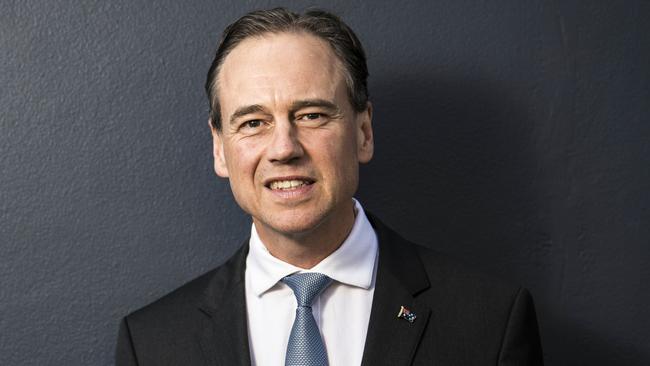Health rebate battle is brewing
The federal rebate on private health insurance faces further likely erosion amid premium rises, setting up an election debate next year.

The standard rate of the health insurance rebate, once a 30 per cent subsidy, is likely to fall below 25 per cent next year, exacerbating premium increases and setting the scene for an election stoush over commonwealth support for the private sector.
Health funds had until yesterday to apply to Health Minister Greg Hunt to increase premiums on April 1 next year.
The Coalition government is aiming for another average industry increase of below 4 per cent, as Labor vows to impose a two-year, 2 per cent cap if elected, arguing that insurers are profiteering.
Despite rolling reform talks, more policies are being dumped or laden with exclusions because of a perceived lack of affordability.
Behind the premium increases, lesser understood changes to the rebate, introduced as a 30 per cent base subsidy in 1999, continue to erode benefit to eligible members.
Labor tied the rebate to CPI, not premium increases, meaning its impact diminishes over time because of higher health inflation.
This, and declining hospital coverage have saved taxpayers money at the expense of health fund members.
An actuarial analysis by Jamie Reid, the principal of Finity Consulting, suggests the standard rebate will fall below 25 per cent next year, depending on CPI and the premium increases to be approved by Mr Hunt.
“Families buying the most comprehensive hospital and extras policies would be more than $450 a year better off if the rebate had remained at 30 per cent,” Mr Reid said.
“This may be one reason why fewer people are choosing policies with no exclusions.”
Mr Reid said means-testing, also introduced by Labor, had stripped rebates from families earning more than $280,000 a year, leaving them $2700 a year worse off.
When Tony Abbott led the Coalition to power, he said the rebate was an “article of faith” for the Liberal Party and vowed to restore it as soon as the budget allowed.
Amid speculation the budget will soon return to surplus, Mr Hunt’s spokeswoman told The Weekend Australian there had been no change in government policy: “The Coalition will consider next steps once the budget is returned to a strong and sustainable surplus.”
She suggested Labor had further plans to scale back the rebate.
Labor has been forced to deny that it would abolish the rebate, but it is still intending to remove it from basic policies covering only public hospital treatment, which would likely increase those premiums by 16 per cent (or force insurers to make other cuts to account for a 2 per cent cap).
Rachel David from insurance lobby group Private Healthcare Australia yesterday called for a floor to be placed under the rebate to halt its decline: “Every dollar the government spends on the rebate leverages a consumer contribution of $4 towards health and dental care.
“Economic work undertaken by Evaluate for PHA has determined the rebate is a 15 per cent more efficient way to fund hospital care as opposed to giving the same amount of money to the states to fund elective surgery and mental health admissions.”
Mr Reid said if premiums increased by less than CPI, as may be the case under a 2 per cent cap, the rebate would remain unchanged.



To join the conversation, please log in. Don't have an account? Register
Join the conversation, you are commenting as Logout